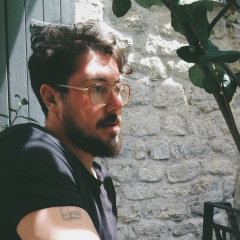У реки Маиси в Бразилии живет необыкновенное племя индейцев Пираха. С неповторимым бытом и своей верой. Писатель и бывший миссионер Дэниэл Эверет прожил среди пираха 30 лет! За это время он разуверился в человеческих ценностях современного мира.
• Люди, которые не спят.
Что говорят друг другу люди, отправляясь спать? В разных культурах пожелания звучат, конечно, по-разному, но везде они высказывают надежду говорящего на то, что его оппонент будет спать сладко, видеть во сне розовых бабочек и проснется утром свежим и полным сил. По-пирахски же "Спокойной ночи" звучит как "Только не вздумай дрыхнуть! Тут всюду змеи!"
Пираха считают, что спать вредно. Во-первых, сон делает тебя слабым. Во-вторых, во сне ты как бы умираешь и просыпаешься немножко другим человеком. И проблема не в том, что этот новый человек тебе не понравится - ты просто перестанешь быть собой, если станешь спать слишком долго и часто. Ну и, в-третьих, змей тут и правда навалом. Так что пираха не спят по ночам. Дремлют урывками, по 20-30 минут, прислоняясь к стене пальмовой хижины или прикорнув под деревом. А остальное время болтают, смеются, мастерят что-нибудь, танцуют у костров и играют с детьми и собаками. Тем не менее сон потихоньку видоизменяет пираха - любой из них помнит, что раньше вместо него были какие-то другие люди.
"Те были гораздо меньше, не умели заниматься сексом и даже питались молоком из грудей. А потом те люди все куда-то делись, и теперь вместо них - я. И если я не буду подолгу спать, то, возможно, и не исчезну. Обнаружив же, что фокус не получился и я опять поменялся, я беру себе другое имя..." В среднем пираха меняют имя раз в 6-7 лет, причем для каждого возраста у них есть свои подходящие имена, так что по имени всегда можно сказать, идет речь о ребенке, подростке, юноше, мужчине или старике
• Люди без завтра.
Возможно, именно такое устройство жизни, при котором ночной сон не разделяет дни с неизбежностью метронома, позволило пираха установить очень странные отношения с категорией времени. Они не знаю что такое "завтра" и что такое "сегодня", и также плохо ориентируют понятия "прошлое" и "будущее". Так что никаких календарей, счета времени и прочих условностей пираха не знают. А потому они никогда не задумываются о будущем, так как просто не умеют этого делать.
Эверет впервые посетил пираха в 1976 году, когда про пираха ничего не было известно. И лингвист-миссионер-этнограф испытал первое потрясение, когда увидел, что пираха не делают запасов еды. Вообще. Чтобы племя, ведущее фактически первобытный образ жизни, не заботилось о дне грядущем - такое по всем канонам невозможно. Но факт остается фактом: пираха не запасают пищу, ои просто ловят ее и едят (или не ловят и не едят, если охотничье-рыбацкое счастье им изменяет).
Когда у пираха нет еды они относятся к этому флегматично. Ему вообще непонятно, зачем есть каждый день, да еще и по нескольку раз. Едят они не чаще двух раз в день и нередко устраивают себе разгрузочные дни, даже тогда, когда пищи в деревне много.
• Люди без цифр.
Долгое время миссионерские организации терпели фиаско, пытаясь вразумить сердца пираха и направить их к Господу. Нет, пираха приветливо встречали представителей католических и протестантских миссионерских организаций, с удовольствием прикрывали свою наготу красивыми подаренными шортами и с интересом ели консервированный компот из банок. Но на этом общение фактически заканчивалось.
Никто так и не смог понять язык пираха. Поэтому Евангелическая церковь США сделала умную вещь: туда послали молодого, но талантивого лингвиста. Эверетт был готов к тому что язык окажется трудным, но он ошибался: "Этот язык не был сложен, он был уникален. Ничего похожего на Земле больше не встречается"
В нем всего семь согласных и три гласных. Еще больше проблем со словарным запасом. Местоимений пираха не знают и если им нужно показать в речи разницу между "я", "ты" и "они" пираха неумело пользуются местоимениями, кторые употребляеют их соседи индейцы-тупи (единственный народ с которым пираха кое-как контактировали)
Глаголы и существительные у них особо не разделяются, и вообще привычные нам языковые нормы тут, похоже, утоплены за ненадобностью. Например, пираха не понимают смысла понятия "один". Вот барсуки, вороны, собак понимают, а пираха - нет. Для них это настолько сложная философская категория, что любой, кто попытается поведать пираха, что это такое, заодно может пересказать теорию относительности.
Цифр и счета они не знают, обходясь всего двумя понятиями: "несколько" и "много" . Две, три и четыре пираньи - это несколько, а вот шесть - уже явно много. А что такое одна пиранья? Это просто пиранья. Проще русскому объяснить зачем нужны артикулы перед словами, чем объяснить пираха зачем считать пиранью, если это пиранья, которую не нужно считать. Поэтому пираха никогда не поверят, что они - маленький народ. Их 300 человек, а это, безусловно, много. Про 7 миллиардов с ними говорить бесполезно: 7 миллиардов - это тоже много. Вас много, и нас мнгого, это просто ?6?
• Люди, которые не спят.
Что говорят друг другу люди, отправляясь спать? В разных культурах пожелания звучат, конечно, по-разному, но везде они высказывают надежду говорящего на то, что его оппонент будет спать сладко, видеть во сне розовых бабочек и проснется утром свежим и полным сил. По-пирахски же "Спокойной ночи" звучит как "Только не вздумай дрыхнуть! Тут всюду змеи!"
Пираха считают, что спать вредно. Во-первых, сон делает тебя слабым. Во-вторых, во сне ты как бы умираешь и просыпаешься немножко другим человеком. И проблема не в том, что этот новый человек тебе не понравится - ты просто перестанешь быть собой, если станешь спать слишком долго и часто. Ну и, в-третьих, змей тут и правда навалом. Так что пираха не спят по ночам. Дремлют урывками, по 20-30 минут, прислоняясь к стене пальмовой хижины или прикорнув под деревом. А остальное время болтают, смеются, мастерят что-нибудь, танцуют у костров и играют с детьми и собаками. Тем не менее сон потихоньку видоизменяет пираха - любой из них помнит, что раньше вместо него были какие-то другие люди.
"Те были гораздо меньше, не умели заниматься сексом и даже питались молоком из грудей. А потом те люди все куда-то делись, и теперь вместо них - я. И если я не буду подолгу спать, то, возможно, и не исчезну. Обнаружив же, что фокус не получился и я опять поменялся, я беру себе другое имя..." В среднем пираха меняют имя раз в 6-7 лет, причем для каждого возраста у них есть свои подходящие имена, так что по имени всегда можно сказать, идет речь о ребенке, подростке, юноше, мужчине или старике
• Люди без завтра.
Возможно, именно такое устройство жизни, при котором ночной сон не разделяет дни с неизбежностью метронома, позволило пираха установить очень странные отношения с категорией времени. Они не знаю что такое "завтра" и что такое "сегодня", и также плохо ориентируют понятия "прошлое" и "будущее". Так что никаких календарей, счета времени и прочих условностей пираха не знают. А потому они никогда не задумываются о будущем, так как просто не умеют этого делать.
Эверет впервые посетил пираха в 1976 году, когда про пираха ничего не было известно. И лингвист-миссионер-этнограф испытал первое потрясение, когда увидел, что пираха не делают запасов еды. Вообще. Чтобы племя, ведущее фактически первобытный образ жизни, не заботилось о дне грядущем - такое по всем канонам невозможно. Но факт остается фактом: пираха не запасают пищу, ои просто ловят ее и едят (или не ловят и не едят, если охотничье-рыбацкое счастье им изменяет).
Когда у пираха нет еды они относятся к этому флегматично. Ему вообще непонятно, зачем есть каждый день, да еще и по нескольку раз. Едят они не чаще двух раз в день и нередко устраивают себе разгрузочные дни, даже тогда, когда пищи в деревне много.
• Люди без цифр.
Долгое время миссионерские организации терпели фиаско, пытаясь вразумить сердца пираха и направить их к Господу. Нет, пираха приветливо встречали представителей католических и протестантских миссионерских организаций, с удовольствием прикрывали свою наготу красивыми подаренными шортами и с интересом ели консервированный компот из банок. Но на этом общение фактически заканчивалось.
Никто так и не смог понять язык пираха. Поэтому Евангелическая церковь США сделала умную вещь: туда послали молодого, но талантивого лингвиста. Эверетт был готов к тому что язык окажется трудным, но он ошибался: "Этот язык не был сложен, он был уникален. Ничего похожего на Земле больше не встречается"
В нем всего семь согласных и три гласных. Еще больше проблем со словарным запасом. Местоимений пираха не знают и если им нужно показать в речи разницу между "я", "ты" и "они" пираха неумело пользуются местоимениями, кторые употребляеют их соседи индейцы-тупи (единственный народ с которым пираха кое-как контактировали)
Глаголы и существительные у них особо не разделяются, и вообще привычные нам языковые нормы тут, похоже, утоплены за ненадобностью. Например, пираха не понимают смысла понятия "один". Вот барсуки, вороны, собак понимают, а пираха - нет. Для них это настолько сложная философская категория, что любой, кто попытается поведать пираха, что это такое, заодно может пересказать теорию относительности.
Цифр и счета они не знают, обходясь всего двумя понятиями: "несколько" и "много" . Две, три и четыре пираньи - это несколько, а вот шесть - уже явно много. А что такое одна пиранья? Это просто пиранья. Проще русскому объяснить зачем нужны артикулы перед словами, чем объяснить пираха зачем считать пиранью, если это пиранья, которую не нужно считать. Поэтому пираха никогда не поверят, что они - маленький народ. Их 300 человек, а это, безусловно, много. Про 7 миллиардов с ними говорить бесполезно: 7 миллиардов - это тоже много. Вас много, и нас мнгого, это просто ?6?
An extraordinary tribe of Pirah Indians lives by the Maisi River in Brazil. With a unique way of life and your faith. Writer and former missionary Daniel Everett lived for 30 years among a pirate! During this time, he lost faith in the human values of the modern world.
• People who do not sleep.
What do people say to each other when they go to bed? In different cultures, wishes sound, of course, in different ways, but everywhere they express the hope of the speaker that his opponent will sleep sweetly, see pink butterflies in a dream and wake up fresh and full of energy in the morning. In Pirakh, “Good night” sounds like “Just don’t try to breathe! Snakes are everywhere!”
Pirakh believes that sleeping is bad. Firstly, sleep makes you weak. Secondly, in a dream you are as if dying and waking up a little different person. And the problem is not that you will not like this new person - you simply cease to be yourself if you start to sleep too long and often. Well, and thirdly, the snake here is really in bulk. So the pirate doesn’t sleep at night. Doze off in fits and starts, for 20-30 minutes, leaning against the wall of a palm hut or snuggling under a tree. And the rest of the time they chat, laugh, do something, dance around the fires and play with children and dogs. Nevertheless, the dream is slowly modifying the pyramid - any of them remembers that before there were some other people instead.
“They were much smaller, did not know how to have sex, and even ate milk from their breasts. And then those people all disappeared somewhere, and now I am in their place. And if I don’t sleep for a long time, I probably won’t disappear. Having discovered that the trick didn’t work out and I changed again, I take a different name for myself ... "On average, a pyraha changes its name every 6-7 years, and for each age they have their own suitable names, so you can always name them say, we are talking about a child, teenager, youth, man or old man
• People without tomorrow.
Perhaps it was such a structure of life in which night sleep does not share days with the inevitability of the metronome that allowed the pirate to establish very strange relations with the category of time. They do not know what “tomorrow” is and what is “today”, and they also poorly orient the concepts of “past” and “future”. So, they don’t know any calendars, time accounts, or other conventions of a pirate. Therefore, they never think about the future, because they simply do not know how to do it.
Everett first visited the pyrah in 1976, when nothing was known about the pyrah. And the linguist-missionary-ethnographer experienced the first shock when he saw that the pirates were not making food supplies. Generally. So that the tribe, leading a virtually primitive way of life, does not take care of the coming day, this is impossible according to all canons. But the fact remains: the pirates do not store food, they just catch it and eat (or do not catch and do not eat if the hunting and fishing happiness changes them).
When a pirate does not have food, they are phlegmatic. He generally does not understand why to eat every day, and even several times. They do not eat more than twice a day and often arrange fasting days for themselves, even when there is a lot of food in the village.
• People without numbers.
For a long time, missionary organizations failed, trying to enlighten the hearts of the pirate and direct them to the Lord. No, the feast was warmly greeted by representatives of Catholic and Protestant missionary organizations, with pleasure covered their nudity with beautiful presented shorts and with interest ate canned stewed fruit from cans. But on this communication actually ended.
No one could understand the language of pirah. Therefore, the US Evangelical Church did a clever thing: they sent a young but talented linguist there. Everett was prepared for the fact that the language would be difficult, but he was mistaken: "This language was not complex, it was unique. Nothing similar to the Earth is found again."
It has only seven consonants and three vowels. Even more problems with vocabulary. They don’t know the pyraha pronouns and if they need to show the difference between “I”, “you” and “they” of the pyraha in speech they misuse the pronouns used by their neighbors Tupi Indians (the only people with whom the pyraha somehow contacted)
Their verbs and nouns are not particularly separated, and in general the linguistic norms that are familiar to us here seem to be drowned as unnecessary. For example, a pirakh does not understand the meaning of the concept of "one." Well, badgers, crows, dogs understand, but a pyraha - no. For them, this is such a complex philosophical category that anyone who tries to tell the pyramid what it is can at the same time retell the theory of relativity.
They don’t know the numbers and accounts, getting by with just two concepts: “several” and “many”. Two, three and four piranhas are a few, but six are already a lot. And what is one piranha? This is just piranha. It’s easier for a Russian to explain why articles are needed before words than to explain a piranha, why consider it a piranha, if it is a piranha that does not need to be considered. Therefore, a pirate will never believe that they are a small nation. There are 300 of them, and this is certainly a lot. It is useless to talk about them with 7 billion: 7 billion is also a lot. There are many of you, and there are many of us
• People who do not sleep.
What do people say to each other when they go to bed? In different cultures, wishes sound, of course, in different ways, but everywhere they express the hope of the speaker that his opponent will sleep sweetly, see pink butterflies in a dream and wake up fresh and full of energy in the morning. In Pirakh, “Good night” sounds like “Just don’t try to breathe! Snakes are everywhere!”
Pirakh believes that sleeping is bad. Firstly, sleep makes you weak. Secondly, in a dream you are as if dying and waking up a little different person. And the problem is not that you will not like this new person - you simply cease to be yourself if you start to sleep too long and often. Well, and thirdly, the snake here is really in bulk. So the pirate doesn’t sleep at night. Doze off in fits and starts, for 20-30 minutes, leaning against the wall of a palm hut or snuggling under a tree. And the rest of the time they chat, laugh, do something, dance around the fires and play with children and dogs. Nevertheless, the dream is slowly modifying the pyramid - any of them remembers that before there were some other people instead.
“They were much smaller, did not know how to have sex, and even ate milk from their breasts. And then those people all disappeared somewhere, and now I am in their place. And if I don’t sleep for a long time, I probably won’t disappear. Having discovered that the trick didn’t work out and I changed again, I take a different name for myself ... "On average, a pyraha changes its name every 6-7 years, and for each age they have their own suitable names, so you can always name them say, we are talking about a child, teenager, youth, man or old man
• People without tomorrow.
Perhaps it was such a structure of life in which night sleep does not share days with the inevitability of the metronome that allowed the pirate to establish very strange relations with the category of time. They do not know what “tomorrow” is and what is “today”, and they also poorly orient the concepts of “past” and “future”. So, they don’t know any calendars, time accounts, or other conventions of a pirate. Therefore, they never think about the future, because they simply do not know how to do it.
Everett first visited the pyrah in 1976, when nothing was known about the pyrah. And the linguist-missionary-ethnographer experienced the first shock when he saw that the pirates were not making food supplies. Generally. So that the tribe, leading a virtually primitive way of life, does not take care of the coming day, this is impossible according to all canons. But the fact remains: the pirates do not store food, they just catch it and eat (or do not catch and do not eat if the hunting and fishing happiness changes them).
When a pirate does not have food, they are phlegmatic. He generally does not understand why to eat every day, and even several times. They do not eat more than twice a day and often arrange fasting days for themselves, even when there is a lot of food in the village.
• People without numbers.
For a long time, missionary organizations failed, trying to enlighten the hearts of the pirate and direct them to the Lord. No, the feast was warmly greeted by representatives of Catholic and Protestant missionary organizations, with pleasure covered their nudity with beautiful presented shorts and with interest ate canned stewed fruit from cans. But on this communication actually ended.
No one could understand the language of pirah. Therefore, the US Evangelical Church did a clever thing: they sent a young but talented linguist there. Everett was prepared for the fact that the language would be difficult, but he was mistaken: "This language was not complex, it was unique. Nothing similar to the Earth is found again."
It has only seven consonants and three vowels. Even more problems with vocabulary. They don’t know the pyraha pronouns and if they need to show the difference between “I”, “you” and “they” of the pyraha in speech they misuse the pronouns used by their neighbors Tupi Indians (the only people with whom the pyraha somehow contacted)
Their verbs and nouns are not particularly separated, and in general the linguistic norms that are familiar to us here seem to be drowned as unnecessary. For example, a pirakh does not understand the meaning of the concept of "one." Well, badgers, crows, dogs understand, but a pyraha - no. For them, this is such a complex philosophical category that anyone who tries to tell the pyramid what it is can at the same time retell the theory of relativity.
They don’t know the numbers and accounts, getting by with just two concepts: “several” and “many”. Two, three and four piranhas are a few, but six are already a lot. And what is one piranha? This is just piranha. It’s easier for a Russian to explain why articles are needed before words than to explain a piranha, why consider it a piranha, if it is a piranha that does not need to be considered. Therefore, a pirate will never believe that they are a small nation. There are 300 of them, and this is certainly a lot. It is useless to talk about them with 7 billion: 7 billion is also a lot. There are many of you, and there are many of us

У записи 174 лайков,
44 репостов.
44 репостов.
Эту запись оставил(а) на своей стене Даниил Трофимов































































